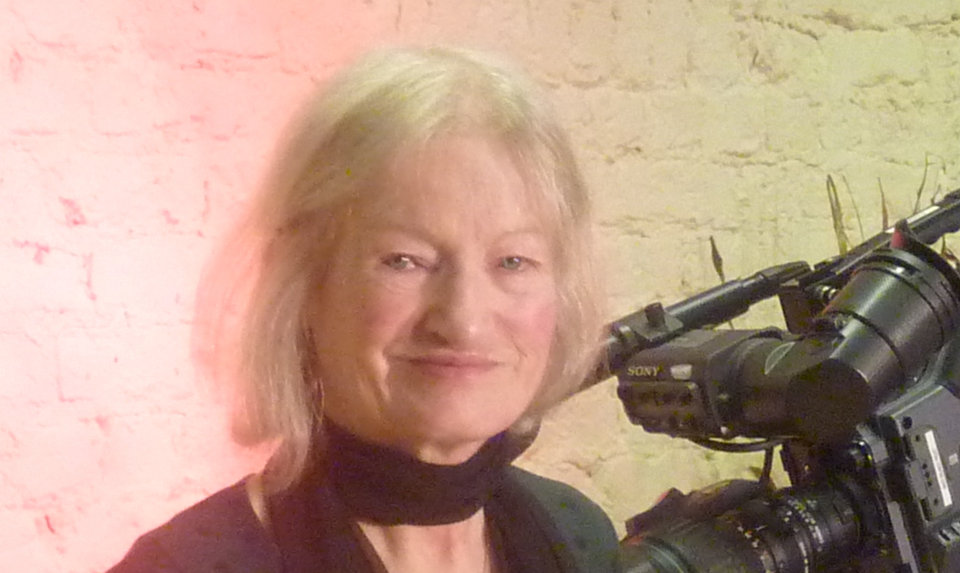Originally from France, Catherine grew up on a small farm. She remembers her childhood as a happy one, though living conditions were sparse.
“Until I was ten, we lived in a house with one kitchen and one bedroom, and we had a bed in the kitchen where the three eldest daughters slept”.
“It was fun because we were quite free as children in the country side.”
Catherine came to Northern Ireland to study English as a French assistant. She arrived in Newry, culturally a very different place from her own upbringing in France.
“I was very young and naive. I found it quite strange. I would go to Newry High School three days and then one day to Crossmaglen school.”
“I didn’t know very much about the North, but I was interested in Ireland and I had this vague notion about how it might be quite interesting to find out more for one year. It was the time of the Hunger Strikes.”
Catherine stayed a second year, teaching in Belfast.
“I’m glad I came really, because you know it was definitely a time for being able to find out things without the pressure of career, nobody around me was very career minded, that wasn’t what we were about.”
“When I got to Belfast it was much more positive. I met people who were anarchists, anti-imperialists, republicans, feminists….”
She began volunteering in the Just Books cafe, the only radical bookshop in Belfast city centre at that time.
“I had friends who were involved in Just Books and my partner at the time said, why don’t you do some volunteering work at the café, they are looking for somebody. I didn’t have that much political awareness. I was glad to be in the café rather than in the bookshop because I thought they were much more clued up”
It was through Just Books that Catherine was asked to write an article for Women’s News.
“I had never done anything like that in my life, I remember going down to the Falls Women’s Centre where they were having a discussion about a number of rapes that had happened. I wrote an article about that”
Catherine became involved in campaigning.
“More at local community level, like in lower Ormeau with the residents action group, I helped with a group protesting the strip searches, designing posters and leaflets and also helped in campaigns for better housing and community improvements. Lower Ormeau, for me, at the time, was a very welcoming place, a good place for a foreigner to be.”
The time spent in Just Books introduced Catherine to literature dealing with women’s’ issues.
“I could see the debates in Women’s News, the women involved. I thought, this is possibly the only place I could express who I was.”
Catherine came out as a lesbian during the early 1980s.
“At the time it was easier to come out anywhere but where your parents lived, and that was true for France, not just for Ireland. I think a lot of lesbian women might not have had it so easy, I think I was lucky because of being in alternative circles, because that created a good space.”
Catherine’s growing social awareness was leading to more campaigning.
“A lot of it was in Women’s News developing the debate.”
She became involved with Reclaim the Night campaign.
“It was quite big in the 1980s, then it fell out of fashion. The idea was on the streets in the dark wherever we are, whenever we go out, however we’re dressed, we have the right as women to be on the streets. Just because there is such a thing as rape, all kinds of dangers doesn’t mean women have to be locked in, what has to be done is the other way around, that safety for women has to be about women having the right to be out and about and doing the same things as men, not hiding.”
In 1987 Catherine became involved with Women’s News.
“It was difficult sometimes to have a unified movement, there were tensions sometimes even between the main women’s centres in town. I just felt very comfortable in Women’s News, sometimes it was difficult to maintain good relationships with different parts of the women’s movement, sometime we wondered how much impact Women’s News had, you could feel a bit isolated sometimes.”
Today, Catherine works for the Belfast Law Centre as their Publications Officer. She sees it as a natural progression from her work at Women’s News.
“In some ways you could say there has been regression in terms of feminism, this idea that why are we even talking about being feminists anymore? At the time I always felt we were never achieving anything, but now I think we did achieve a lot.”




